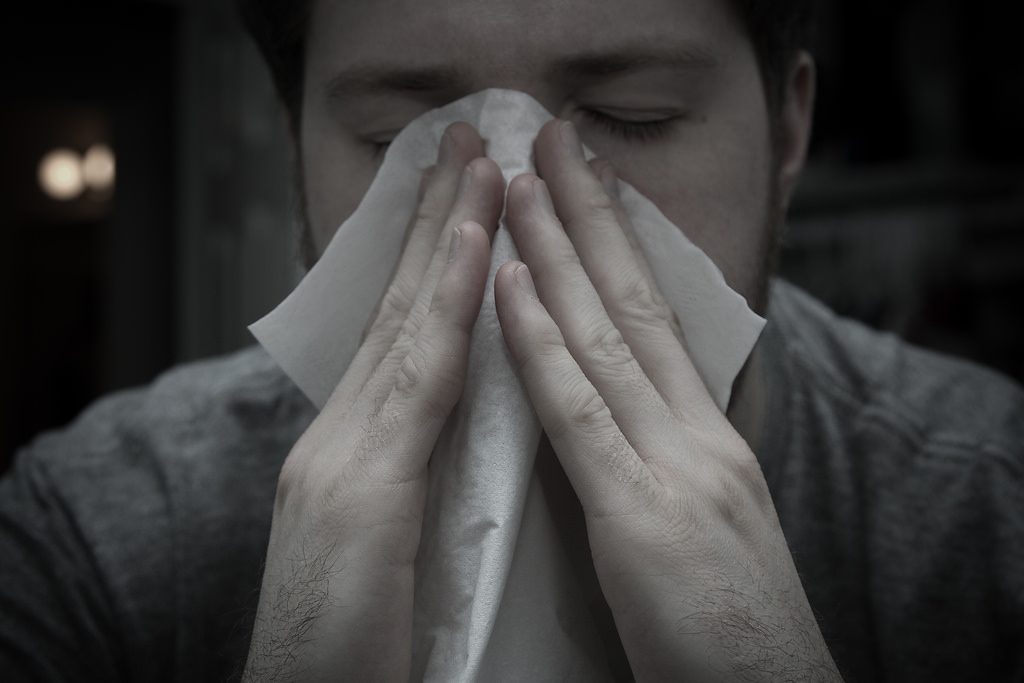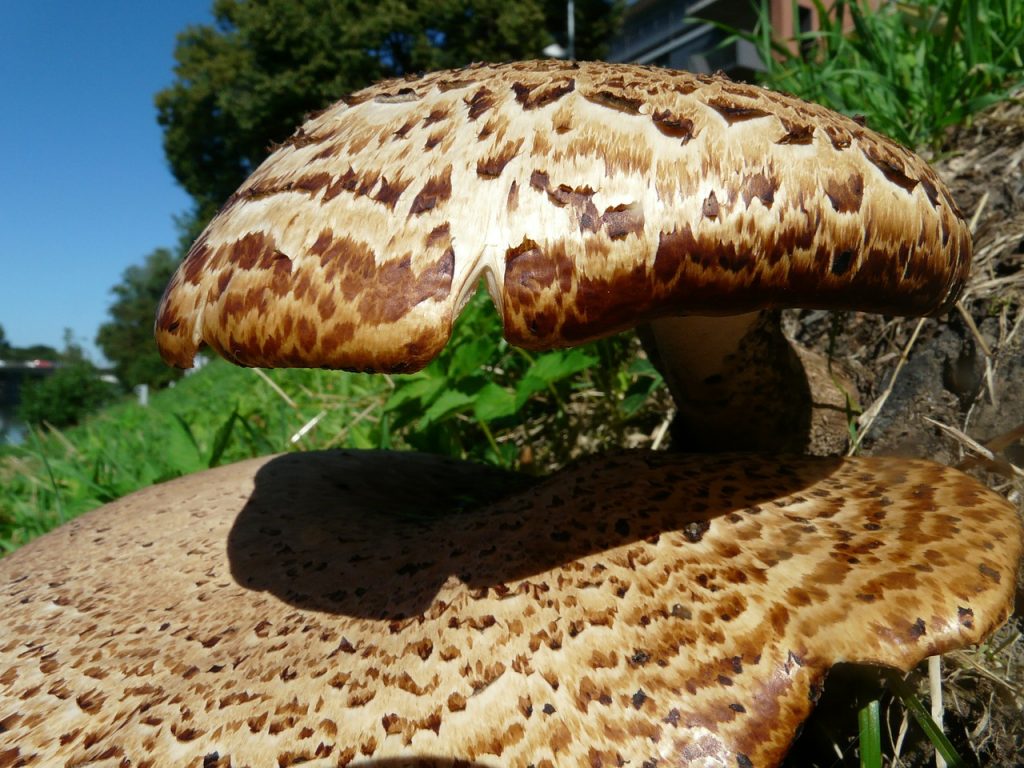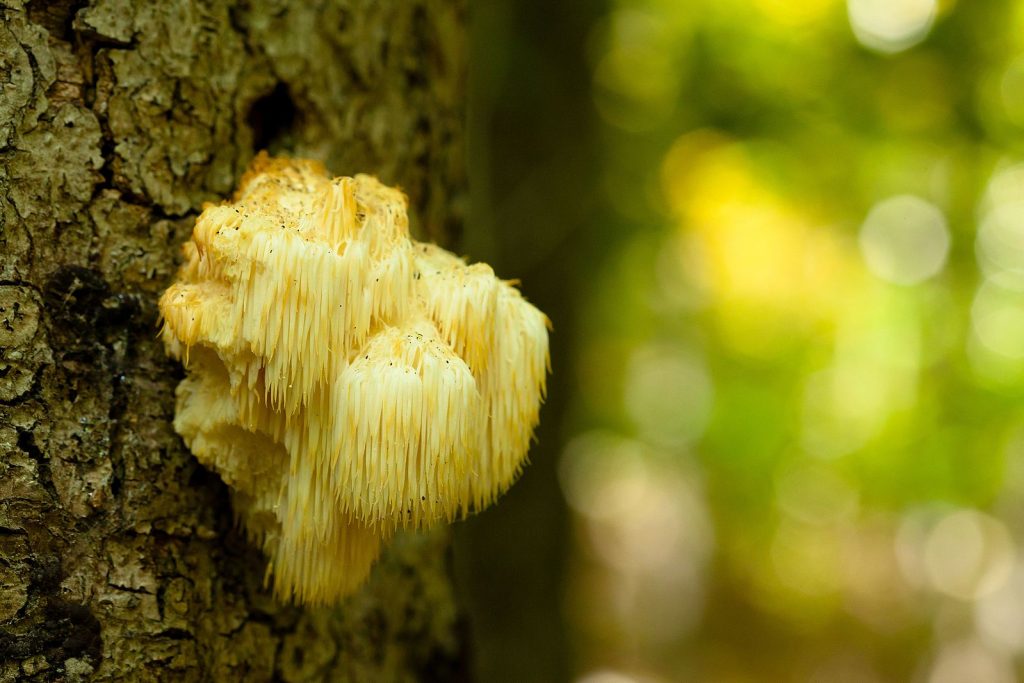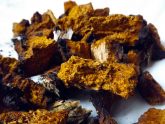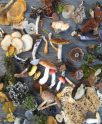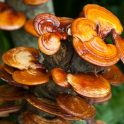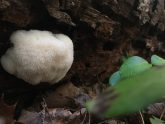Can Medicinal Mushrooms Treat Your Allergies?
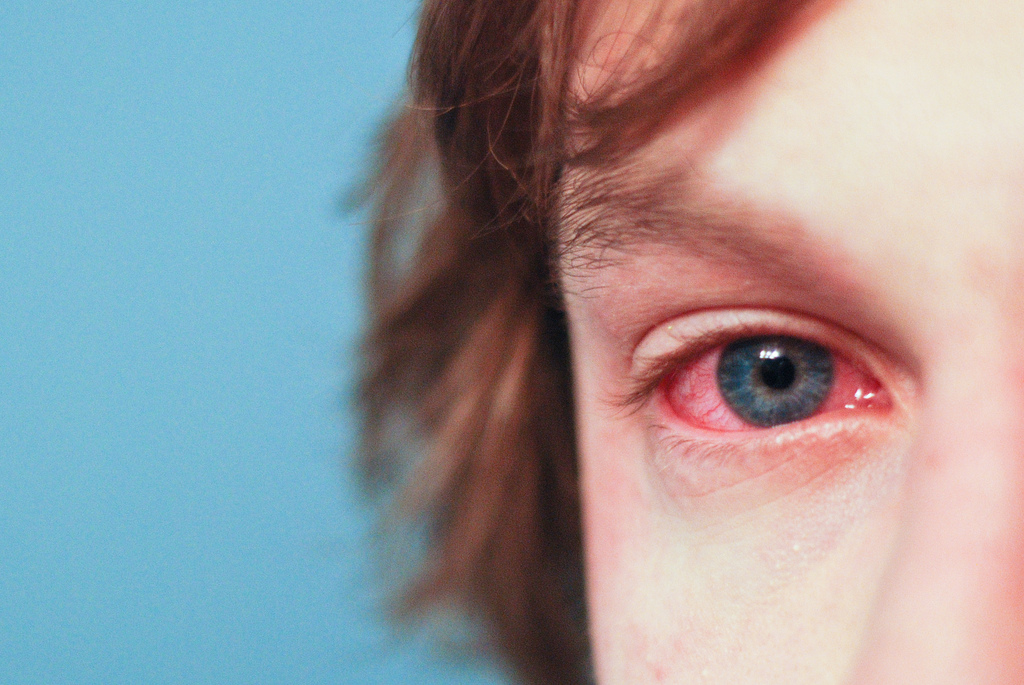
It is obvious that the number of allergy sufferers is growing each year: researchers think nasal allergies affect about 50 million people in the United States alone. Allergies currently affect as many as 30 percent of adults and 40 percent of children. Allergic disease, including asthma, is the fifth leading chronic disease in the U.S. in people of all ages. And those affected by allergies can be considerably restricted in their quality of life and, furthermore, they pave the way for further hypersensitivity reactions. As with other immune-mediated conditions, medicinal mushroom extracts may help with allergies by bringing the immune system into balance. Medicinal Mushrooms are therefore gaining more and more potential for awakening the self-healing powers of our body.
Most allergy symptoms appear on the mucous membranes of the nose, eyes and throat with burning, itching, swelling, and redness, rashes, or hives. There may be a cramping of the bronchial muscles with paroxysmal dyspnoea and coughing. When neurodermatitis occurs, itching, dryness, inflammation, scaling and crusting on the skin appear. Often patients scratch their skin so intensively that it leads to severe skin damage and the risk of additional infections of the affected skin.
For the most part, for all forms of allergy a hereditary predisposition is often present, although in principle any person can become an allergy sufferer. The allergy is based on a faulty regulation and an excessive defense response of the immune system. The actual purpose of the immune system is the defense against pathogenic agents, such as bacteria, viruses or parasites. After the intake of such pathogens into the organism and during the course of infection, there is a formation of specific antibodies or immune cells against the corresponding pathogens, thus building immunity. During a later contact with the same pathogens, the person doesn’t become sick a second time as the immune system “remembers” the first contact with the pathogen and immediately begins producing the specific antibodies or immune cells.
The ingestion of medicinal mushrooms offers a promising possibility for bringing the immune system back into balance. They contain substances that ensure the maintenance of the performance and resilience of the body even in stressful situations. Excessive immune responses can be hindered or a weak immune system can be stimulated. Thus medicinal mushrooms have a regulatory function.
Mushrooms offer a well-documented record of efficacy in modulating the immune system and significantly reducing the over-reactiveness of the Th2 immune response, thus also down regulating the histamine levels and overall inflammation. On top of this, they are a safe nutraceutic that can be used long-term and will generally strengthen the body, increase its ability to adapt to stress, promote balance, and favor good metabolism and detox, all of which are factors with an effect on the immune system. Other elements that are being looked into by modern science are the peptides that leak into the bloodstream due to a deficiency of the impermeability of the gut lining. This phenomenon called “leaky gut syndrome” is linked to increased immune reactivity and allergic reactions such as asthma and eczema. Mushrooms such Lion’s Mane are very effective in treating the lining of the gut and restoring its protective function.
Mushrooms are a great way to prevent allergies due to their immuno-modulatory action. Keeping a strong yet balanced immunity and a body as free of inflammation and oxidation as possible can make a great difference. Mushrooms can be used safely all-year-round as prevention, and special protocols like the one with Reishi, Polyporus, Royal Sun and Lion’s Mane in slightly higher doses can be used in preparation for the hay fever season, for a recommended period of 3 months in advance.
Reishi is a general anti-inflammatory mushroom with a special affinity to the connective tissue, thus good for all sorts of allergic processes but especially for those with a component of eczema, inflammation and irritation of throat and nose mucosa, etc. Its effects are compared to those of hydrocortisone (but without the side-effects). Its triterpenes also have antihistaminic properties.
Royal Sun or Agaricus blazei has the highest content of beta-glucans among the known medicinal mushrooms, fact that turns it in the best modulator of the immune system of all. Studies show how Agaricus not only stimulates a weak immune system but also brings balance to the Th1 and Th2 response and acts therefore as an antihistaminic remedy, also due to specific biocomponents that inhibit histamine release by mast cells.
Polyporus will ensure proper elimination of excess mucous thus helping with congestion and phlegm. This, added to its antibacterial and antiviral actions, is the key for those allergy sufferers who tend to develop infections in the airways. During an episode of allergy, when the mucosa of the airways is irritated and broken, opportunistic bacteria and viruses are quite common and tend to thrive and grow in the excess mucosity accumulated in the passages of the nose and the throat.
Lion´s Mane is the mushroom involved in gut healing, especially in restoring a healthy intestinal lining and gut flora. It is very important in the management of a leaky gut, which is at the core of many allergies according to recent research. Due to an overload of toxins and big proteins passing through a too permeable intestine to the bloodstream, it is overwhelming our immune system and creating an allergic response anywhere in the body. Lion’s Mane promotes the healthy structure of the gastric and intestinal mucosa, so that allergenic substances from food cannot so easily pass through the intestinal wall. This is especially helpful for neurodermatitis and also for very young children, as well as food allergies and intolerances. It also has a strengthening and regenerating effect on the mucous membranes of the respiratory tract. A change in diet and a restoration of the intestinal tract is essential as a basic therapy for allergies.

